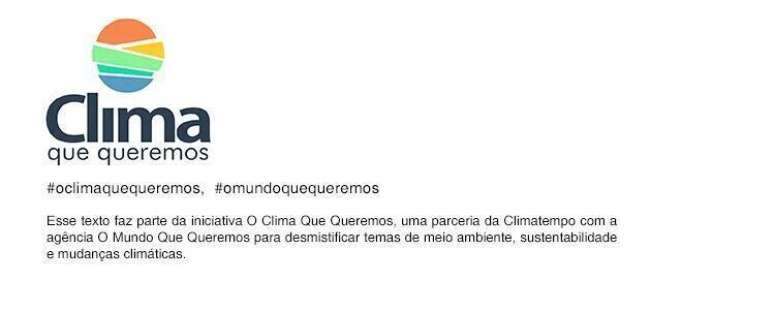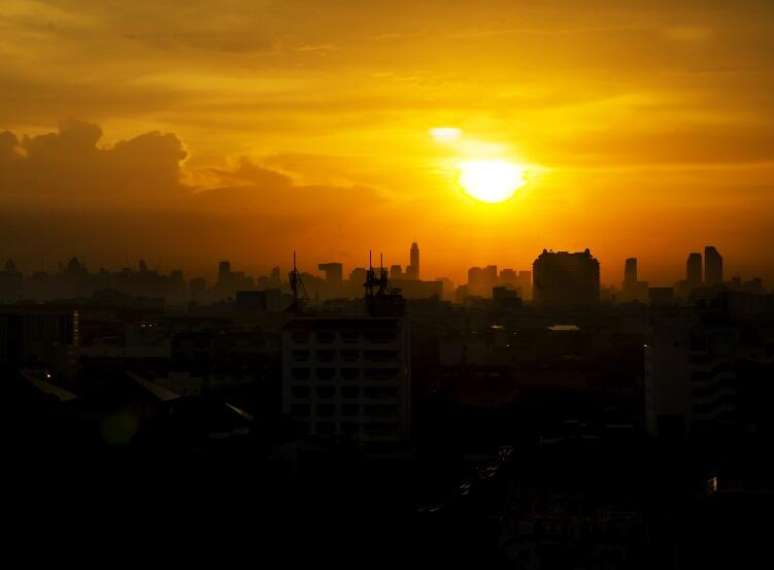Brazil’s recent heatwave was 100 times more likely due to human-caused climate change, a WWA rapid attribution study reveals.
Experts point out that, despite the influence of El Niño, the high temperatures in Latin America during August and September were mainly caused by human-induced warming.
To the climate changes caused by human action are the most likely cause explain the recent heat wave recorded in Brazil and in other Latin American countries, in August and September of this year. According to the World Weather Attribution (WWA) rapid attribution study, although El Niño may have had some influence on high temperatures, it is at least 100 times more likely that climate change is the main cause of the heat.
Heat wave in early spring 2023 in South America was 100 times more likely due to human-caused climate change (Photo: Getty Images)
In August and September, large regions of South America were hit by exceptionally extreme heat. In Brazil, the end of winter and the beginning of spring were characterized by heat waves that affected much of the country, with temperatures exceeding 40°C in some municipalities in the Centre-North.
According to the National Institute of Meteorology, the cities of Cuiabá (MT) and São Paulo (SP) had the warmest winter in the last 63 years.
The study was conducted by 12 researchers from the World Weather Attribution group, including scientists from universities and weather agencies in Brazil, the Netherlands, the United Kingdom and the United States, and analyzed the ten hottest consecutive days in August and September in a region that includes Paraguay, Brazil and regions of Bolivia and Argentina, where the heat was most extreme.
Comparison between climates with and without global warming
To quantify the effect of climate change on sustained high temperatures, scientists analyzed meteorological data and model simulations compare the current climate, after about 1.2°C of global warming since the end of the 19th century, with the climate of the past, following methods also examined by other scientists. The analysis also considered the effect of El Niño, a natural phenomenon that causes temperatures to rise in South America and other parts of the world, and which is affecting the region this year.
Scientists have concluded that these episodes of extreme heat in South America outside of the summer months would have been extremely unlikely without human-caused climate change, and it turned out climate change has made heat 100 times more likely.
In the current climate, very unusually warm temperatures in the early spring can be expected in the region about once every 30 years. A Climate change also made the heat episode between 1.4 and 4.3°C warmer than it would have been if man had not warmed the climate.
Influence of climate change and El Niño
Lincoln Muniz Alves, of the National Institute for Space Research (INPE), is one of the authors of the study and points out that, although many people have referred to El Niño to explain the heat wave, this analysis shows that climate change is the main cause.
“We want to be clear that the development of El Niño would have contributed some warmth, but without climate change, such an intense spring surge would have been extremely unlikely.”
Heat episodes like this will become even more frequent and extreme if greenhouse gas emissions are not quickly reduced to zero, scientists warn. If global warming reached 2°C, similar heat waves would become even more likely, occurring once every 5 or 6 years and increasing by 1.1-1.6°C compared to the current climate.
“Spring temperatures above 40°C are becoming common in many parts of the world. This is the reality of our climate, which is warming rapidly“, adds Izidine Pinto, researcher at the Royal Netherlands Meteorological Institute.
“Unless ambitious steps are taken in this direction rapidly reduce greenhouse gas emissionsThese heatwaves will only become more intense, affecting vulnerable people and destroying ecosystems vital to regulating our climate.”

Source: Terra
Rose James is a Gossipify movie and series reviewer known for her in-depth analysis and unique perspective on the latest releases. With a background in film studies, she provides engaging and informative reviews, and keeps readers up to date with industry trends and emerging talents.








